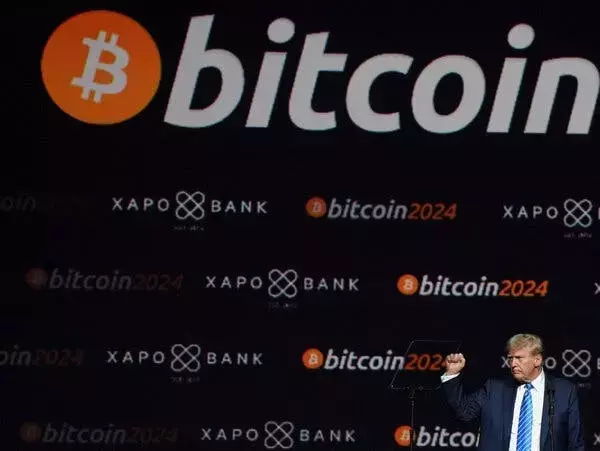
The cryptocurrency market, spearheaded by Bitcoin, has experienced an extraordinary ascent, with the world's leading digital currency surpassing the $120,000 mark. This remarkable surge is occurring concurrently with a focused legislative initiative in the United States House of Representatives, dubbed 'crypto week', aimed at cultivating a more accommodating regulatory landscape for digital assets. The confluence of rising market values and proactive legislative endeavors signifies a pivotal moment for the burgeoning cryptocurrency sector, reflecting growing mainstream acceptance and institutional interest.
Bitcoin's Meteoric Rise and the Legislative Landscape
In a significant financial development, Bitcoin, the preeminent cryptocurrency, has recently shattered records, trading above a staggering $122,000 as of Monday. This incredible achievement represents a more than twofold increase in its value over the past year, propelling its enigmatic creator, Satoshi Nakamoto, into the ranks of the world's wealthiest individuals. This impressive trajectory for Bitcoin, along with other prominent digital currencies such as Ether, XRP, and Solana, is widely perceived as a direct reflection of the cryptocurrency industry's burgeoning prosperity, particularly within the current political climate.
Adding fuel to this digital asset revolution, the United States House of Representatives has designated a crucial period, aptly termed 'crypto week' by leading Republican figures, to vigorously address legislation pertinent to the digital currency sphere. This legislative push is strategically designed to position America as a global nexus for digital currency innovation and adoption.
The legislative agenda under consideration by the House includes several key bills. Firstly, the GENIUS Act seeks to establish regulations for stablecoins, a measure that has already gained approval in the Senate. Secondly, the Digital Asset Market Clarity Act aims to delineate a precise regulatory framework for cryptocurrencies, crucially defining the oversight roles of the Commodity Futures Trading Commission and the Securities and Exchange Commission. Lastly, the Anti-CBDC Surveillance State Act proposes to prohibit the Federal Reserve from developing its own central bank digital currency, safeguarding against potential government overreach into financial privacy.
Republicans assert that these concerted legislative actions are vital for nurturing the rapid growth of the digital asset industry, which has historically faced stringent scrutiny. Representative French Hill of Arkansas, who chairs the House Financial Services Committee, articulated the legislative body's commitment, stating, \"We are embarking on historic measures to ensure the United States maintains its global leadership in innovation.\" This resounding endorsement from Capitol Hill is serving as a powerful catalyst for the rally in Bitcoin and other digital currencies, attracting a surge of interest from mainstream investors and established financial institutions. Notably, U.S. Bitcoin exchange-traded funds recently recorded an impressive inflow exceeding $2.7 billion in just one week, marking one of their most robust performances since their introduction last year.
The current surge in Bitcoin's value, coupled with the focused legislative attention from the U.S. House, underscores a crucial shift in how digital assets are perceived and integrated into the global financial system. This period marks a potential turning point, signaling a future where cryptocurrencies are not just niche investments but are increasingly recognized and regulated as legitimate financial instruments. The ongoing legislative efforts suggest a broader acceptance and a concerted push towards clarity and stability, which could pave the way for unprecedented growth and innovation within the digital economy. As a keen observer of the financial markets, one cannot help but be intrigued by the profound implications of these developments. The clear, unified front presented by lawmakers, particularly on issues of regulation and innovation, bodes well for a sector that has long navigated uncertain waters. This concerted effort could mitigate risks, foster greater investor confidence, and ultimately unlock the full potential of digital currencies to reshape economic paradigms globally.
